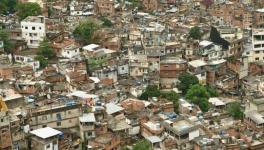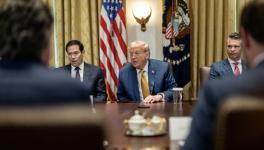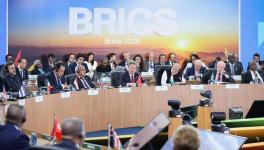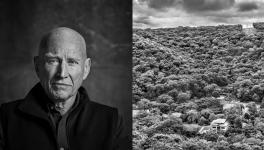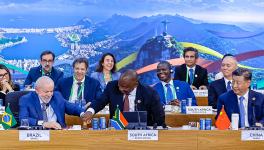It’s ‘ Apocalypse Now’ for Global Environment if Bolsonaro Wins

Image Courtesy: sciencemag.org
As Brazil heads towards having Jair Bolsonaro as its new president, local scientists and researchers fear for the future of Brazilian science and research. Academic freedom in research places, protection of the country’s biodiversity and Brazil’s role in the global struggle against climate change are the issues the scientists fear will suffer in the far-right regime.
Bolsonaro’s policies will not only harm Brazil’s science and research, but also can prove a disaster for global climatic deterioration.
Paulo Artaxo, a climate change researcher at the University of São Paulo (USP) in São Paulo, Brazil, said to Science magazine. “There is no point sugarcoating it. Bolsonaro is the worst thing that could happen for the environment.”
Brazil has been in a leading role in the global battle against climate change. The pioneering Earth Summit 1992 was hosted by Brazil, and it was the time when the world leaders first convened to sign a UN backed convention on climate change. The Left-wing government of Brazil, starting in the mid-2000s determinedly worked to reduce deforestation in the Amazon basin which is known to be the “Lungs of the World”. Brazil’s zero illegal deforestation pledged to finish all kinds of illegal deforestation and also to significantly reduce its carbon emissions. Its ratification of the Paris Accord in 2016 has also been seen as an important factor in the global campaigns of climate change.
Bolsonaro has vowed to withdraw Brazil from the Paris Accord and plans to eliminate the Ministry of Environment. He plans that the duties of the ministry of environment will be folded into the ministry of agriculture, livestock and supply. Bolsonaro, while campaigning in the Amazon said that Amazon has too many ‘protected areas’ that stand in the way of ‘Brazil’s development’.
Edson Duarte, the environment minister of Brazil in his recent interview, said that Bolsonaro’s policy of withdrawing from Paris Accord and scuttling of the environment ministry will pave the way for gangs of loggers and miners to rush to Amazon basin, which will expose the world’s largest rainforest and its indigenous owners to grave threats. He said—“ I am afraid of a gold rush to see who arrives first. They will know that, if they occupy illegally, the authorities will be complacent and will grant concordance. They will be certain that nobody will bother them.”
Brazil’s indigenous communities in the amazon also feel that their rights will be snatched if his policies are implemented. Dinaman Tuxa, the national coordinator of Brazil’s Association of Indigenous Peoples, in an interview said—“He has already said that the federal government will no longer champion indigenous rights, such as access to the land. We are very scared. I fear for my own life.” He further adds—“If he wins, he will institutionalize genocide”.
Not only his climate policies, but the science policies as revealed in the Brazilian newspaper O Estado de S. Paulo has made country’s scientific community worried. It pledges to more than double the R&D investment in the coming four years, but would mostly focus on applied sciences like that of space and robotics rather than on basic researches in universities.
Bolsonaro’s pick for crafting his science and education plans has been a staunch defender of teaching creationism, who says that students need to know that Darwin existed, but not necessarily “agree to him.”
On the other hand, Bolsonaro’s main contender, Haddad, from the Left-wing, has pledged to rebuild the National science, technology and innovation system. His campaigns revealed his intention to increase investment on science and research field—to intensify the country’s R&D expenditure to 2% of the GDP by the year 2030.
Although Bolsonaro declares more investment in R&D, 2.5% of GDP by 2022, the end of his term, his plans show more reliance on the private sector to boost R&D spending. These tall claims made by Bolsonaro, as many researchers doubt, will not be fulfilled. Fernando Peregrino said to Science – “I have heard this promise many times before.” Brazil lacks both economic policies and fiscal stability to support generously for R&D—he believes. Fernando Peregrino is a science policy expert and the president of Confies in Brasila.
Bolsonaro’s science vision advocates for a “greater balance” between “curiosity-oriented research and research focused on missions and goals”. “One of the political difficulties is that public research in Brazil still has a strong academic bias, without focus or specific priorities,” Bolsonaro’s campaign document says.
“Academic and intellectual freedom is something that needs to be preserved even if it is important to define strategic goals and national priorities”—is what the president of Brazilian Academy of Sciences, Mr. Luiz Davidovich has to say.
Get the latest reports & analysis with people's perspective on Protests, movements & deep analytical videos, discussions of the current affairs in your Telegram app. Subscribe to NewsClick's Telegram channel & get Real-Time updates on stories, as they get published on our website.









